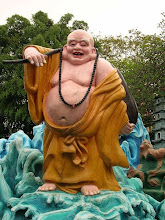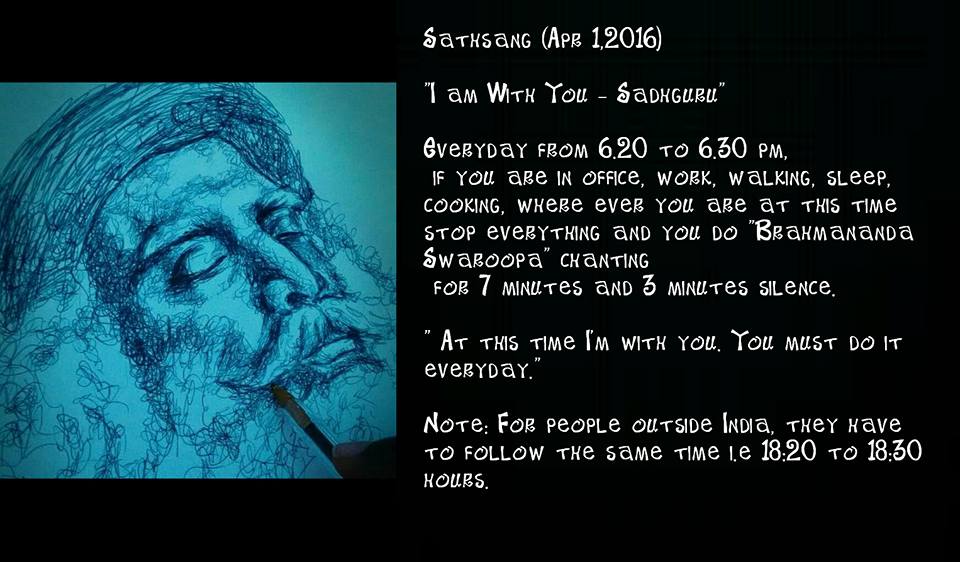
Last night I was reading "The Book of Mirdad". It was so beautiful and so strong that I couldn't stop reading for hours. Then suddenly I felt that my breath had changed, and I found myself on the edge of crying, and I didn't know whether it was sadness, desperation, bliss, or all three at the same time.
I tried to find out by reading the words again, but I realised that my mind didn't really understand them when I looked at them. How is it possible that words which the mind doesn't understand can touch one so deeply?
There are millions of books in the world, but The Book of Mirdad stands out far above any other book in existence.
It is unfortunate that very few people are acquainted with The Book of Mirdad for the simple reason that it is not a religious scripture. It is a parable, a fiction, but containing oceanic truth.
It is a small book, but the man who gave birth to this book... and mind my words, I am not saying "the man who wrote this book." Nobody wrote this book. I am saying the man who gave birth to this book - he was an unknown, a nobody. And because he was not a novelist, he never wrote again; just that single book contains his whole experience.
The name of the man was Mikhail Naimy.
It is an extraordinary book in the sense that you can read it and miss it completely, because the meaning of the book is not in the words of the book. The meaning of the book is running side by side in silence between the words, between the lines, in the gaps.
If you are in a state of meditativeness - if you are not only reading a fiction but you are encountering the whole religious experience of a great human being, absorbing it; not intellectually understanding but existentially drinking it - the words are there but they become secondary. Something else becomes primary: the silence that those words create, the music that those words create. The words affect your mind, and the music goes directly to your heart.
And it is a book to be read by the heart, not by the mind. It is a book not to be understood, but experienced. It is something phenomenal.
Millions of people have tried to write books so that they can express the inexpressible, but they have utterly failed. I know only one book, The Book of Mirdad, which has not failed; and if you cannot get to the very essence of it, it will be your failure, not his.
He has created a perfect device of words, parables, situations. If you allow it, the book becomes alive and something starts happening to your being. And naturally, because you have never come to such a state, you are puzzled about what it is - sadness? blissfulness? There are tears, but those tears can be either of sadness or they can be of immense joy.
You have come to a point where you have never been before, so naturally you cannot categorize it. You cannot put a label on it according to your old experiences. But the name does not mean anything. What matters is that you have taken a step beyond yourself. You have never been in this space; you have entered into the unknown, and it is so unknown that you don't have the vocabulary even to give it a name.
Just see the point: It may look like sadness... because for the first time in your life you will become aware that up to now you have not been alive. Life has happened today.
And it brings a great sadness... you were alive - but knowing this new experience, your whole life becomes so mundane, so meaningless, that it is better to say that it was more death than life. And a sadness arises that, "Why could I not reach this space before?" It is so close - just a step beyond the boundaries of your old mind and the whole sky with all its stars becomes available. You were confined in such a small prison - and nobody was imprisoning you. You were the prisoner and you were the imprisoned. You were the jailer and you were the jailed. Naturally... a sadness, looking to the past.
But looking to the present... a great blissfulness, a peace that passeth understanding, a silence that is not just the opposite of sound... a silence which is absence of sound, not the opposite of sound. A music without any instruments, a song without any words....
For the first time you start feeling that, "Up to now I have been living in the head; and only this moment the doors of my heart are open."
There is an old Chinese story. Because of the story a proverb has come into existence - that when the musician becomes perfect, he burns his instruments; they become not only useless, they become a nuisance because they only create noise. Only between the noise are there a few moments of music - why not have it all?
And when the archer becomes a perfect master, he drops his bow and his arrows and forgets all about it. A strange proverb - because ordinarily we think that when we become perfect our instruments will also attain a perfection with us; their working will also become perfect.
...
A musician when he is perfect forgets his instruments; now silence is his music.
The Book of Mirdad is one of the greatest devices that have been created down the ages. Don't read it like any other book. Don't read it like Shri Bhagavadgita or the Holy Bible. Read it as beautiful poetry, as music spread on the pages. Read it as a message from a master of meditation.
The words are code words.
Don't look for their meaning in the dictionary.
Their meaning is when they strike something in your heart.
That's why you felt, reading Mirdad, that your breathing changed. It has to be understood very carefully: your breathing changes with each of your emotions. When you are angry, watch: you will have a different kind of breathing, unrhythmic, chaotic. When you are in love, just holding the hand of your beloved, your breathing will be different - peaceful, silent, musical, harmonious. And these are small things; I am just giving you examples to understand.
When you are sitting with the master, the breathing becomes so harmonious that sometimes you may think it has stopped. There will be moments when suddenly you become aware - "Has my breathing stopped?" Because it will be so silent that even you cannot feel its movement.
...
This happened to you reading Mirdad, that you felt your breathing was changing. It was beautiful. And because your breathing changed, that's why you came to a point where you were indecisive. Whether you were sad or silent, blissful, ecstatic, you could not decide, because the thing was so new and you had no category to put it in.
But I will tell you: You were sad, sad because you have wasted your whole life - and this space was so close; you were just to reach and it was going to be available to you. You were sad, just like a beggar will be sad who comes to know that he is the emperor and there has been some mistake; the beggar is sitting on the throne and the emperor is begging in the streets. All those years of begging... a shadow, a sadness.
You also felt silence, because The Book of Mirdad has been created by a man who knows the inner workings of human consciousness. He was not a writer; hence, nobody ever bothered to give him a Nobel prize. He was alive in this century, he was our contemporary. His book has not been translated into many languages for the simple reason that the book is unique - it is not a book, it is a device. And it is not meant to be read, it is meant to create a certain atmosphere around you. If you are ready, available, receptive, the atmosphere will be created and there will be great silence. And silence is always blissful.
So you got very much confused: There was sadness because of the past; there was silence because of the present - and silence is always bringing flowers of blissfulness.
You thought there must be something in the words, so you read those words again. But you could not find it; in those words there was nothing, they were ordinary words. From where was this experience happening?
It was happening because you are on the path.
You are part of a mystery school.
You are a seeker.
It would not have happened to you if you were not on the path. It happened to you because you were getting ready for this happening, and The Book of Mirdad simply triggered what was already going to happen. It would have happened even without The Book of Mirdad, perhaps a little later.
The man on the path may find in his life.... Listening to music sometimes it happens. The musician may be an ordinary man; he may not know anything about silence and blissfulness, but his music can trigger something in you. It may be triggered by seeing a sunset; now the sunset is not aware of you at all. It may be triggered by the perfume of a rose.
But remember one thing: Just because The Book of Mirdad helped you in reaching a new space in yourself, don't tell others to read it - because they will find it just ordinary fiction, beautiful. They may even destroy your connection that has been created unknowingly; you were not ready for this experience. So one thing: Don't tell others, "Read The Book of Mirdad, it brings such beautiful experiences." It may not bring them anything.
Secondly, because it has brought you a beautiful experience this time, don't read it again and again in order to get it. Because this time you were not expecting anything; next time you will be full of expectations. You will be waiting and watching for when it happens - it will not happen. Once in a while it is possible, but the basic condition to be fulfilled is, no expectations.
And I say to you, because it happened with The Book of Mirdad it can happen through many other avenues. You are ready, you just need a little push. Be available to all those situations where that push is possible, but without any expectation. Just to enjoy... a beautiful dance, beautiful music, a beautiful painting; just sitting by the side of the sea and the music of the waves, the continuous music, or looking at the moon - anything may help, but don't expect.
The Book of Mirdad can be of immense help if you don't expect, and it is a book worth reading thousands of times. You cannot understand its oceanic meaning in one reading, because in each page, each turn, each chapter, each line, there is a possibility - because the man who wrote it....
I understand that man. He was one of the greatest men of this century. He lived unknown to the world, but just this one book makes him the greatest writer not only of this century but of all the centuries.
...
The Book of Mirdad needs to be in every house, it is so precious.
And it has touched your heart.
Just don't start having expectations, and it will help you on the way immensely.












 This does not mean that you will not miss
This does not mean that you will not miss




























